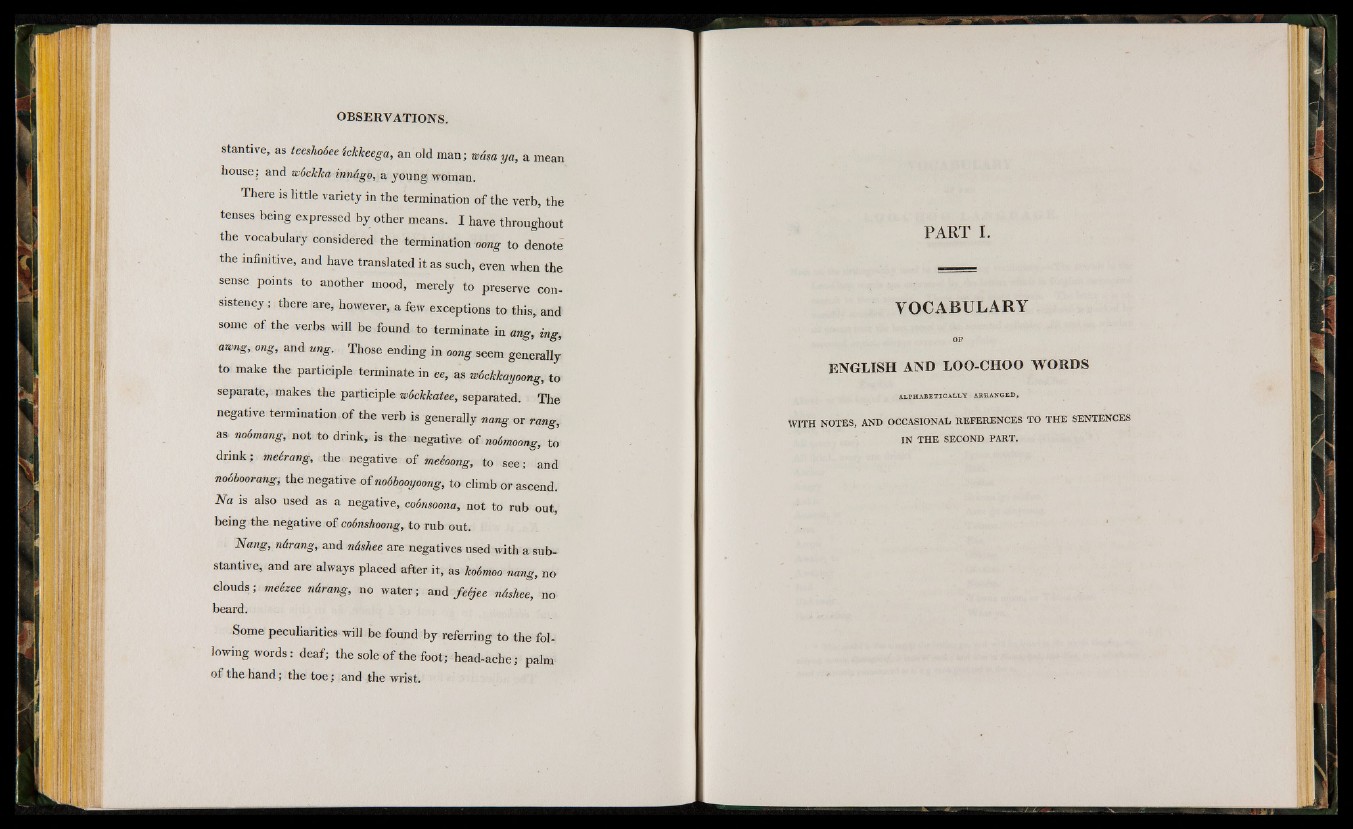
OBSERVATIONS.
stantive, as teesho6ee ickkeega, an old man; w&sa ya, a mean
house; and wockka inndgo, a young woman.
There is little variety in the termination of the verb, the
tenses being expressed by other means. I have throughout
the vocabulary considered the termination oong to denote
the infinitive, and have translated it as such, even when the
sense points to another mood, merely to preserve consistency;
there are, however, a few exceptions to this, and
some of the verbs will be found to terminate in ang, ing,
awng, ong, and ung. Those ending in oong seem generally
to make the participle terminate in ee, as wbckkayoong, to
separate, makes the participle wbckkatee, separated. The
negative termination of the verb is generally nang or rang,
as nobmang, not to drink, is the negative of nobmoong, 1
d rin k ; mebrang, the negative of meboong, to see; and
nobboorang, the negative of nobbooyoong, to climb or ascend.
Na is also used as a negative, cobnsoona, not to rub out,
being the negative of cobnshoong, to rub out.
Nang, ndrang, and ndshee are negatives used with a substantive,
and are always placed after it, as kobmoo nang, no
clouds; mebzee ndrang, no water; and febjee ndshee, no
beard.
Some peculiarities will be found by referring to the following
words: deaf; the sole of the foot; head-ache; palm
of the hand; the to e ; and the wrist.
PART I.
VO C A BU LA R Y
OF
EN G L ISH AND LOO-CHOO W O RD S
A L P H A B E T IC A L L Y A R R A N G E D ,
WITH NOTES, AND OCCASIONAL REFERENCES TO THE SENTENCES
IN THE SECOND PART.